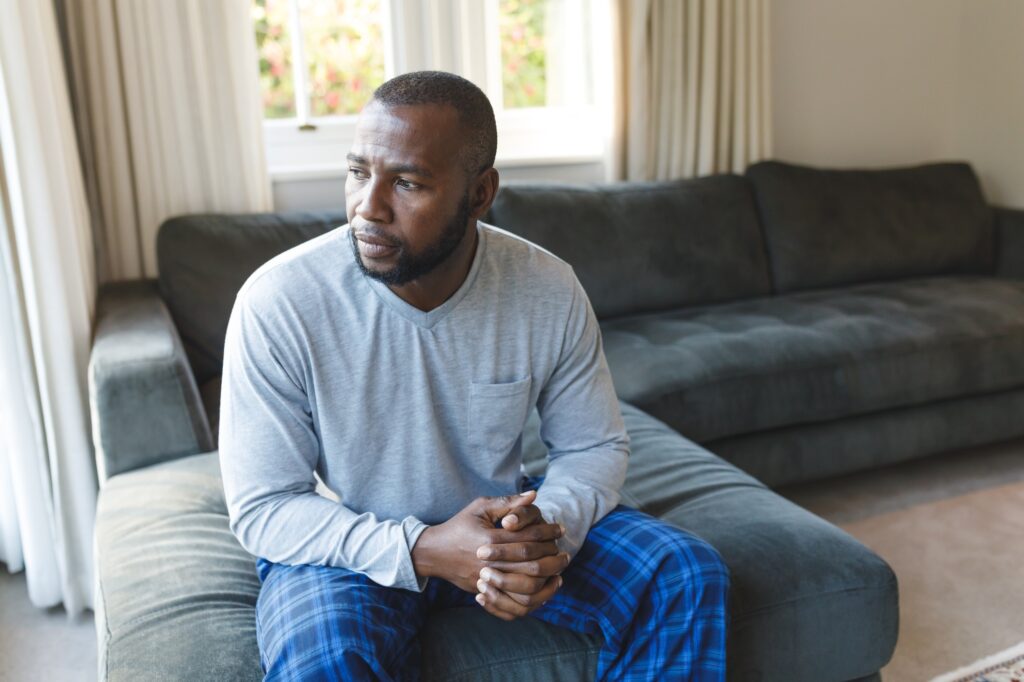Premier Mental Health & Substance Abuse Treatment Center near Los Angeles in Whittier

Mental Health & Addiction Treatment Center in Whittier, CA
Whittier’s Premier Mental Health & Substance Abuse Outpatient Treatment Center is committed to improving the lives of individuals who are struggling with mental health and substance abuse. Regardless of how these issues are impacting your life, we can help you move past them to a better you.
Refer a Friend
Referring a friend to Solace Treatment Center means entrusting them to a facility where comprehensive care, an expert team, and tailored treatment plans converge to support each individual’s unique journey to recovery.
Anxiety Self Test
Our at-home Anxiety Test is a vital tool designed to help individuals identify anxiety symptoms from the comfort of their own space, ensuring privacy and convenience during this critical initial assessment phase.
Depression Self Test
Our at-home Depression test can play a crucial role in your journey toward recovery from depression. Find out the symptoms and if you are suffering, from the privacy of your own home during the initial assessment.
Intensive
Outpatient
Our program offers a vital piece in the step down process. We make sure your reintroduction into life is done safely and comfortably.
Partial
Hospitalization
We offer treatment that works with your schedule. All groups, therapy sessions, and scheduling are done in a space you come to visit.
Online
Outpatient
Embrace recovery from the comfort of your home with our Online Outpatient Program, blending expert care with the convenience and privacy of virtual therapy.
Located In
Southern California
Our facility is centered in the heart of the beautiful LA area. Aside from breathtaking beaches and perfect weather, this town offers an abundance of recovery with hundreds of social gatherings happening each and every day.
We Offer
Individualized Treatment
Here at Solace Treatment, we know that no two cases are alike. That’s why we tailor each and every treatment plan to meet the specific needs of each client under our care. Success in long term recovery requires attention to the little things and that’s why our clinicians will walk right by you or your loved one as a road to happiness is reached. See what we treat below!



Anxiety
Disorder
When someone is struggling with an anxiety disorder they are usually feeling a lot of worry, fear, or stress which can be sometimes debilitating to their day to day routine. We utilize the latest in evidence-based techniques to help our clients overcome these obstacles and thrive.

Depressive
Disorder
People who struggle with untreated depression can face unnecessary hardships in life which could be preventable with proper treatment. Find out how we can help you or your loved one find a road to success.

Trauma
Disorders
At Solace Treatment Center, we provide specialized care for trauma disorders, offering a safe and understanding space where individuals can heal through personalized therapy, support, and evidence-based treatments tailored to each person’s unique journey towards recovery.

Bipolar
Disorder
People who struggle with bipolar disorder often times find themselves in unexpected mood swings. These can range from feeling down and depressed all the way to a happy manic state. Our professionals are licensed and able to help.
Addiction
Treatment
Our Whittier addiction treatment program combines evidence-based therapies, compassionate support, and a personalized approach to empower you in overcoming addiction.
Mental Health
Treatment
We offer a range of therapies and support services in a compassionate environment, designed to help you navigate and overcome mental health challenges and embrace a fulfilling life.
Dual Diagnosis
Treatment
The trained and caring staff on our clinical team make sure to provide only the golden standard of mental health treatment.

Opioid
Addiction
Whether it’s a prescription drug used for pain or an illegal street drug like heroin, opioid addiction is a deadly condition that has become an epidemic in the United States. We can help you or your loved with a multitude of therapies and positive habit forming techniques.

Alcohol
Addiction
Alcoholism is a chronic disease that causes an uncontrollable desire to drink alcohol in excess. This leads to both physical and emotional dependance on alcohol which can be disastrous on both the individual suffering and the lives of those around them. Outpatient treatment plays a vital roll in long-term sobriety and we help our clients by giving them the tools they need for success.

Prescription Drug
Addiction
Overcome prescription drug addiction with our dedicated treatment program at Solace Treatment Center, offering a blend of expert medical support, personalized therapy, and holistic approaches to help you regain control and build a healthier, drug-free future.

Meth
Addiction
Methamphetamine is a highly addictive stimulant which can lead to psychosis, paranoia, delirium, irregular heartbeat, and even heart failure. Although it is used to treat ADHD, people who are prone to substance abuse disorder will often times find themselves trapped in an addicted state and unable to quit.
Treatment Programs
For Veterans
Solace Treatment Center proudly supports our veterans through a specialized treatment program, tailored to address the unique challenges faced by service members. Our approach combines expert counseling, trauma-informed care, and comprehensive support to help veterans heal and thrive.

We Are Committed to Your Recovery
Los Angeles’s Premier Mental Health & Substance Abuse Treatment Center is committed to improving the lives of individuals who are struggling with mental health and substance abuse. Regardless of how these issues are impacting your life, we can help you move past them to a better you.
Solace Treatment is licensed and/or certified by the State Department of Health Care Services.
License #: 191240AP Expiration: 09/30/2025


